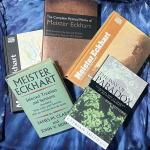Faith on Tap” is a short series on the divine connections I see between monastic life and the art of brewing beer. This blog series is meant to be a red-carpet inauguration of the First Annual Strategic Monk Brewery Pilgrimage. Our tour began on May 1st with Eagle Rock Brewery in Los Angeles and continues on June 4th at LadyFace Ale Companie in Agoura Hills. RSVP here to join us!
“For a quart of Ale is a dish for a King.”
— William Shakespeare (A Winter’s Tale)
During the Middle Ages, monks began brewing “liquid bread” for the Lenten season. The strict rules of the orders required monks to discipline themselves with regular periods of fasting, when next to no solid food would pass their lips.
The longest, and most taxing, of these fasting periods of culinary abstinence was Lent, the 40 days from Ash Wednesday to Easter Sunday. Because the monks believed that liquids cleansed not only the body but also the soul, they would make plenty of liquid instead of solid bread from their grain, and then drink significant quantities; the more, the holier.
Monks often served as their society’s role models in religious and other practices, and people outside the monasteries followed their example. In some ways, the same is true today, when the number of people living outside monastic communities who are committed to Benedictine life is far greater than the number living as vowed monks and nuns.
As my understanding of Benedictine practices and the Rule of Benedict has grown, I have gained appreciation for Benedict’s insight into people and practical management ability. He carefully describes a vision for living and working together, along with strategies and tactics that continue to be effective today. Benedict also explains the values and principles in which his vision, strategies, and tactics are based.
In short, as I have read and learned more about Benedictine practices, I have come to recognize that many of the passions and values that have shaped my entire life have a strong connection to Benedict…even Liquid Bread!
The first word in the English translation of the Prologue to the Rule of Benedict is “Listen;” being open is the very beginning of Benedict’s approach. Benedict carefully sets expectations and standards of behavior in many areas of life in the Rule; at the same time, he appreciates the need for flexibility and adaptation.
I am drawn to Benedictine life at a deep level by the practical, loving way that Benedict understands how people live and grow. The “Rule” is more of a ruler, which we can use to measure ourselves, than regulations set out to constrict our thoughts and actions.
What “Rulers” do you live by? Perhaps you could also use the Benedictine Rule?
[ image by simondee ]

















